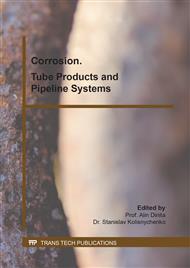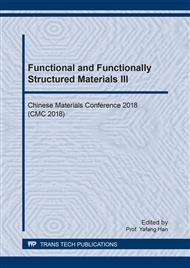p.1040
p.1050
p.1061
p.1067
p.1076
p.1082
p.1088
p.1094
p.1103
Nitrates Induced Stress Corrosion Cracking in Tubing Connections from Oil Well
Abstract:
The 110 Ksi tubing failed in use when reservoir acidification reconstruction and production testing were performed in an oil well, which were longitudinal cracking of coupling. Failure analysis was conducted on the coupling. The failure zone was studied by means of macroscopic analysis, metallographic, scanning electronic microscope,energy dispersive spectrometer and X-ray diffraction analysis etc. The results indicated that the failure of the coupling is caused by stress corrosion cracking (SCC). SCC initiated from the exterior surface of coupling and displayed the fracture feature of intergranular crack propagation. The corrosion products at the grain boundaries were found to be mainly some oxides. The failure was in connection with the completion fluid composition, which are mainly nitrates.
Info:
Periodical:
Pages:
1076-1081
DOI:
Citation:
Online since:
January 2019
Authors:
Keywords:
Price:
Сopyright:
© 2019 Trans Tech Publications Ltd. All Rights Reserved
Share:
Citation:



